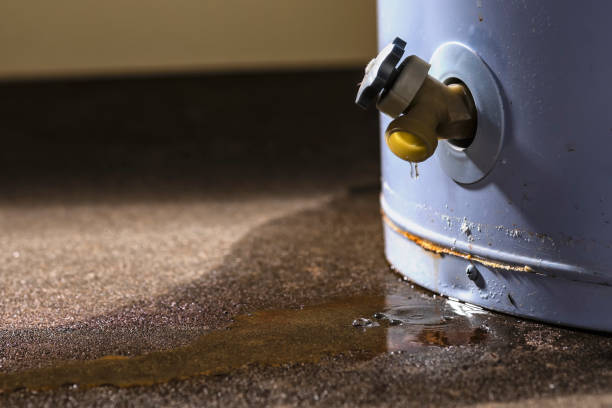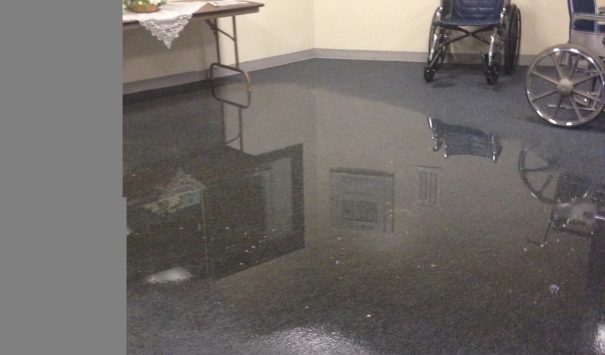Necessary Procedures for Residential Property Owners Managing Malfunctioning Hot Water Systems
Necessary Procedures for Residential Property Owners Managing Malfunctioning Hot Water Systems
Blog Article
Just how do you really feel about Water Heater Burst?

Whether it is located in the basement or a different room, broken hot water heater can cause anxiety. A typical system holds 80 gallons, so an overnight leak will certainly lead to a flooding. This leads to major property damage with soaked wall surfaces and also floors. Having no hot water supply is likewise problematic. If you are handling these issues, take note of the following:
Shut Off Power Source
Before calling the plumber, turned off a gas hot water heater by transforming the temperature dial. This is usually situated on top of the thermostat. Change off the circuit breaker if you have a model that runs on electrical power. This will protect against electrocution, particularly if there is a leakage as water is a conductor. Commonly, the heating element shuts down when the water hits a details temperature. Yet with a broken storage tank, it might malfunction. Cutting it off assures you remain safe.
Cut Off the Cold Water Supply
Cut off the containers faucet water supply from the source. This goes from your major water line right into the tank. When your tank remains in good condition, the cold water stops filling when the storage tank is full. Because it is leaking, the water will continue to flow. Close the valve located at the top of the heater. Turn this clockwise to close it off. If you can not discover it or reach it, you have to switch off that major water line outside your residential property.
Call the Plumber
After doing the first 2 safety and security steps, you need to call your plumber to find today to repair a burst hot water heater. However, bear in mind that your system will not just conk out drastically overnight. There are normally signs that your aging hot water heater has sediment buildup in the inside. Bear in mind of the following:
Rather, as soon as you spot these indications, have an expert come to inspect your water heater say thanks to. Generally, water heating systems have a lifespan of regarding 8 to 12 years.
Tidy up Building
After calling the plumber, record damage by making note as well as images so you can declare your home owner's insurance coverage. From there, begin the immediate cleaning. Take out any type of vital valuables to stop further soaking. Remove any type of standing water to avoid mold and mildew and mildew growth. If you have a submersible water pump, utilize that to drain pipes the water. Or else, the standard container technique will likewise work. Try to wipe out every little thing, consisting of wall surfaces as well as baseboards. Keep them running to maintain air distributing if you have an electric follower and dehumidifier. This will certainly assist deter mold and mildew growth.
Remember, if you observe any problems with your water heating system, call the pros right away. You can not take this problem lightly since a damaged thermostat can raise water temp to a hazardously high degree, leading to accidental burns.
Whether it is located in the basement or a separate space, busted water heating systems can create tension. Prior to calling the plumber, closed off a gas water heating unit by transforming the temperature dial. After doing the very first 2 safety steps, you should call your plumber to come right away to take care of a ruptured water heating unit. If you have a completely submersible water pump, use that to drain the water. Remember, if you notice any type of concerns with your water heater, call the pros right away.
Is My Water Heater Broken?
The Water Heater is Old
No appliance will last forever. This includes a home’s water heater. During its lifespan, residents are going to face a situation where a new water heater installation will be necessary. The biggest problem with this is that most people are not sure when their water heater expires. Not knowing this can lead to serious risks if the unit begins to act up due to old age.
Most makes and models of water heaters will last between eight and 10 years. While 10 years is the age when water heater replacement is highly recommended, the need to replace the unit may occur before this time or after. If the unit doesn’t show any symptoms of a problem, it is a good idea to replace it at the 10-year mark (from the manufacture date).
Some of the symptoms that indicate a new unit is needed include rusting, leaks, noises, and a failure to heat up the water. Also, note that not all units have a 10-year life expectancy. The main exception to this rule is that a gas unit will last for six to eight years.
Rusty Heater Inlet Valve or Water
While steel is the strongest material on earth, it does have a weakness – rust. If corrosion occurs on a steel surface, it will begin to spread and eat through the steel in certain areas. On water tanks and pipes that are made of steel, rust is a warning sign of an impending leak.
The issue for many is trying to figure out if the rust is coming from the water heater or the pipes that lead to the faucet. If rust is seen, it is a clear indication that water heater service from the professionals is needed.
If rusty water appears out of the faucets in the bathtub or sink, it likely means a rusty water heater. If there is rust near the water inlet or the pressure relief valve, rust has likely developed inside the tank. If tap water appears rusty, it may be an issue with the pipes.
Strange Sounds from the Water Heater
Are there strange sounds coming from the tank? As a water heater gets older, rumbling noises may develop and get louder and louder as the water in the tank heats up. In homes where large amounts of hot water are used, the issue is likely going to be even more obvious when more serious issues arise. If there is a strange or loud noise coming from the unit, it is probably because of sediment buildup. A good way to remedy this problem is by flushing the heater. If this does not work, then a new unit may need to be installed.
Leaks
As a water heater gets closer to the end of its useful life, there is a higher chance there will be water around the tank. If there is water, this usually means leaks are occurring. Based on where the unit is located in the home, a leak may result in serious property damage.
Leaks are usually caused by expansions in the metal tank. The expansions occur as time passes and as the inside body of the tank is exposed to multiple heating cycles per day. When a fracture forms, the gap will be slight enough to hold the water in; however, in more serious situations, this will not be the case. If the tank is idle, the water will not leak but when the metal expands during each heating system, small amounts of water will get through the gap.

Do you appreciate more info about Broken Water Heaters? Put feedback below. We'd be pleased to listen to your thinking about this page. We are looking forward that you come back again soon. Sharing is nice. Helping people is fun. Thanks for your time. Come back soon.
Find Out More Report this page